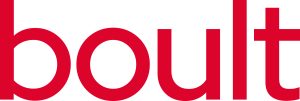While I enjoyed my engineering degree at Imperial College London, I always felt that being an engineer when I graduated wasn’t quite for me. The projects I worked on were fascinating but ultimately the idea of becoming focused on one particular area of engineering felt too restrictive. Having encountered aspects of intellectual property while working on my final year project I decided to investigate patent law as a career.
I applied to a number of firms and had a few interviews. I chose to join Boult Wade Tennant as the atmosphere immediately impressed me. The firm came across as friendly and welcoming, and they let their work and reputation speak for themselves without the need for pretension.
Today, the main duties of my role involve helping the attorneys and partners manage their caseload. Often I will be working for a number of different attorneys at any one time which requires a good ability to self-manage an extensive workload and the confidence to speak up when you’re fully booked. Each morning I look forward to getting into work and assisting on new pieces of technology, while I’ve been here I’ve worked on everything from aeroplanes to bicycles.
The biggest challenge for anyone entering this field is the number of examinations which are still in front of you; expect at least 3-4r years of more examinations when you join. For some of these you will be expected to study in your own time when you get home from the office. It’s therefore really important to understand what the support and tutorial structure is like at your firm to ensure that you have the best chance of getting through the exams successfully. While four more years of examinations after university doesn’t sound all that thrilling, you will still be working on real cases while you’re learning so it isn’t just theoretical.
For anyone looking to get into the profession, take ten minutes and have a go at writing a description of an object on your desk. It doesn’t have to be perfect, but just see how you do at describing the physical features which lie behind its function. It’s a quick exercise that lets you practice one of the fundamental aspects of the career. You never know, if you’re good at this, I may bump into you at the office!







